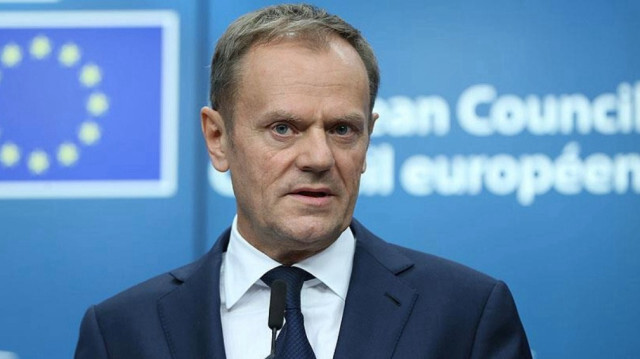The Israeli Shekel's Slide Amid Geopolitical Tensions
As geopolitical tensions continue to rattle investors, the Israeli Shekel experiences a marked depreciation against the US dollar and other major currencies.
Published April 27, 2024 - 00:04am
The Israeli Shekel is persisting in its descent against the US dollar, with a 0.12% drop in today's trading, settling at a level of 3.802 Shekels per dollar, following a more significant fall the day before on Thursday.
In a day marked by heightened volatility amidst thin trading over the Passover holiday in Israel, which started last Tuesday and lasts for 7 days, the Israeli Shekel saw a sharp decline against major global currencies on Thursday, according to Israeli newspaper Globes.
Following the slump, the Bank of Israel announced an increase of 0.913% in the exchange rate of the Shekel against the dollar, reaching 3.794 Shekels per dollar, and a rise of 1.192% against the euro, reaching 4.066 Shekels per euro. Later on Thursday evening, the Shekel experienced an additional dip by 0.2%, hitting 3.801 Shekels per dollar.
Amid ongoing tensions, the chief strategist at Bank Hapoalim, Modi Shafrir, shed light on the significant impact of reduced trading volume during the holiday period, emphasizing that even minor fluctuations in exchange rates wield strong influence over trading dynamics.
Shafrir attributed the Shekel's decline to the following factors:
- Mainly to the ongoing geopolitical tensions, particularly with concerns escalating over the conflict with Iran and the anticipated operation in Rafah (south of the Gaza Strip), which led to exacerbated market uncertainty.
- Shafrir noted that foreign investors are leaning towards safer assets such as the dollar and euro, partly driven by the decline in global stock markets.
- Shafrir considered that the recent downgrade of Israel's economy by Standard & Poor's played a part in weakening sentiments surrounding the Shekel.
The CEO of 'Energy Finance, Yossi Frank, emphasized the abnormality of Forex activity during the holiday, stressing how the Israeli market deviated from standard trading patterns. Frank pointed out that 'in an environment characterized by minimal trading activity, the Shekel experienced significant volatility, starkly contrasting with the global trajectory of the dollar.'
The Shekel's decline coincides with the weakening of the dollar against other major currencies, following initial responses to the anticipated figures of the US Gross Domestic Product.
Market expectations for an imminent rate cut by the US Federal Reserve in response to economic indicators are putting additional pressure on the dollar.
Looking ahead, the devaluation of the Shekel could exaggerate the inflationary pressures in Israel, particularly with the imminent rise in milk prices expected next month.
As a result, the prospects of monetary easing in Israel appear increasingly remote, highlighting the complexities faced by policymakers amidst global economic uncertainty.
The sustained depreciation of the Israeli Shekel in a short trading week due to the Passover holiday underscores its susceptibility to international market forces and domestic economic activities. The decline, though marginal, points to a broader sentiment of uncertainty within financial markets as investors reassess their portfolios in light of recent geopolitical developments and economic forecasts.
Concerning geopolitical tensions, Iran's nuclear aspirations and its regional ambitions continue to cast a shadow over Middle Eastern stability. Israel, being at the forefront of voicing concerns and countering Iranian influence, finds its currency reacting to these geopolitical shifts. The situation in Rafah adds to Israel's security concerns, prompting market participants to exercise caution. Furthermore, the reduced trading volumes during holidays like Passover amplify the impact of such geopolitical news on currency valuations.
The recent moves by foreign investors towards more stable assets underscore a broader risk-averse sentiment which can be attributed to several factors. Beyond the search for safety in the US dollar and euro, investors are also wary of the potential ripple effects of changes in the US economy, especially with respect to the Federal Reserve's next steps. The speculation of a US rate cut speaks to the interconnectedness of global financial systems, with investor expectations in one country being swayed by policy directions in another.
Analysts also attribute the Shekel's sensitivity to announcements like the downgrade by Standard & Poor's, which impacts the investment community's confidence. Credit ratings are closely monitored as they influence foreign direct investment, impacting currency strength based on perceived economic health and stability.
The unusual Forex activity noted during the Passover holiday highlights a deviation that might not only be timely but also symbolic of broader economic changes. As the Shekel continues to struggle, it becomes clear that these fluctuations have moved beyond just seasonal aberrations and into trend-defining movements.
Israel's economic challenges are further complicated by internal price changes, such as the predicted increase in milk prices. Inflationary pressures are of particular concern to the country's central bank, which might find conventional tools like monetary easing less feasible in the current economic context. With increased costs of living, the central bank's decision-making could become even more challenging.
The broader implications of the Shekel's performance impact not only traders and investors but also Israeli consumers and businesses. As the currency weakens, imports become more expensive, increasing the cost of goods and potentially slowing down economic growth. This dynamic introduces added layers of difficulty for managing the national economy, as it involves balancing between stimulating growth and controlling inflation.
As Israel's policymakers grapple with these issues, the global economy also watches on. With every dip and rise in currency value, the pulse of Israel's economic resilience is tested. The upcoming days, followed by the end of the Passover holiday, may provide a clearer indication of the Shekel's trajectory as regular trading volumes resume and the market responds to both domestic economic policy and international events.







